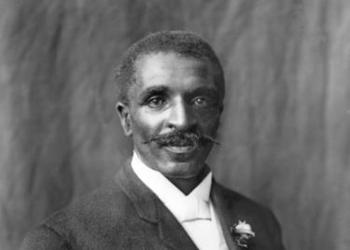Life Lessons
Veneer Isn't Worth Anything

There was no reason to think the young child named George would be successful. Born a slave, he was orphaned when slave raiders kidnapped his mother. The couple who owned George took care of the sickly boy as if he was their own. At the end of the American Civil War they adopted their former slave and gave him their own name: Carver.
George Washington Carver would go on to become an accomplished botanist, artist, scientist and educator. On occasion he said that it was the kindness and encouragement of others that helped him succeed far beyond what anyone could have thought possible.
There were many simple acts of kindness shown to George in his young life. When he was around twelve years old, the Carvers let him move away from home to attend a school for black students. There was Mrs. Mueller who gave him an old spelling book so he could teach himself how to read. And there was the Swiss farmer, Hermann Jaegar, who encouraged him to attend school.
George Washington Carver died in 1943. He was criticized for his lack of anger towards his former owners. Dr. Carver chose not to dwell on the tragedies of his life, but on how he could help others. He spent his life developing ways for poor farmers to grow better crops, create new uses for old crops, and revitalize the soil. He even refused to patent his innovations because he wanted all people to benefit from them.
Accolades and status meant little to this former slave. He summarized his philosophy of life this way: "It is not the style of clothes one wears, neither the kind of automobiles that one drives, nor the amount of money one has in the bank, that counts. These things mean nothing. It is simple service that measures success."
George Washington Carver is remembered, not just for his contributions to science, but as a man who strove to live what he taught. "There is no shortcut to achievement," he once said. "Life requires thorough preparation—veneer isn't worth anything."
We call this character trait integrity.
Three parts of integrity
Integrity—It's what everyone demands of their leaders, sales people, doctors and pastors. Politicians claim to have it. But what is it? Stephen Carter in his book Integrity makes this observation: “The word integrity comes from the same Latin root as integer and historically has been understood to carry much the same sense, the sense of wholeness: a person of integrity, like a whole number, is a whole person, a person somehow undivided” (Integrity, Stephen L. Carter, 1996, BasicBooks, p. 7.).
In the Old Testament, the Hebrew word tom, translated “integrity,” has the same meaning of wholeness. King Solomon wrote: "He who walks with integrity walks securely, but he who perverts his ways will become known" (Proverbs 10:9).
The more consistent a person is in knowing what he actually believes, articulating what he believes, and conducting his life based on those beliefs, the more integral he is. Yet we must admit, it is possible for someone to base their conduct on a false belief. The person may be sincere and consistent, but do they have integrity?
Stephen Carter concludes that integrity requires three steps:
1. Discerning what is right and wrong.
2. Acting on what you have discerned, even at personal cost.
3. Saying openly that you are acting on your understanding of right and wrong (Integrity, p. 7).
When Jesus was asked about the greatest commandment, He answered: “You shall love the LORD your God with all your heart, with all your soul, with all your mind, and with all your strength” (Mark 12:30).
God requires integrity in your relationship with Him. You are to love Him with all of your emotions, life, intellect and energy. When you compromise with sinful behaviors, wrong thoughts and emotions, you are divided in your loyalty and your integrity is compromised.
On another occasion, a young man came to Christ asking, “Good Teacher, what good thing shall I do that I may have eternal life?” Jesus answered by telling him to obey the commandments. The man answered, “‘All these things I have kept from my youth. What do I still lack?’ Then Jesus said to him, ‘If you want to be perfect, go sell what you have and give to the poor and you will have treasure in heaven; and come, follow Me.’ But when the young man heard that saying, he went away sorrowful, for he had great possessions.” (Matthew 19:16-22). This man obeyed God in many areas of life. Jesus didn't argue that he wasn't keeping the commandments. The young man had compartmentalized a segment of his life, his possessions, and it was in this area that he maintained full personal control instead of submitting to God.
Integrity in every compartment of life
It is common for people to deal with guilt by “compartmentalizing.” A man having an affair may appear to be a fine husband and father. When he is with his family he strives to fulfill those roles, but as soon as he is with his mistress he forgets his wife and children. We see people who are honest in personal relationships become cutthroats in money matters, claiming “business is business.” They live by two conflicting codes of ethics, but maintain a semblance of balance by role-playing. Playing sports is another area where a person who is otherwise kind and law abiding may participate in dirty play and cheating.
Integrity is to be a whole person where feelings, thoughts and actions are harmonious with right principles that are consistent with the Creator's purpose for your life. Everything else is just veneer.
